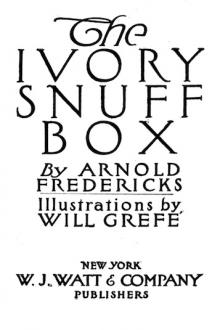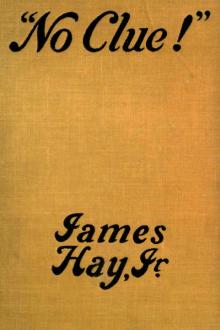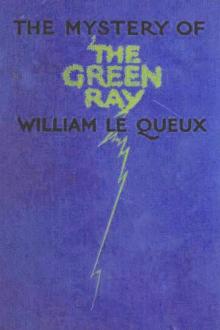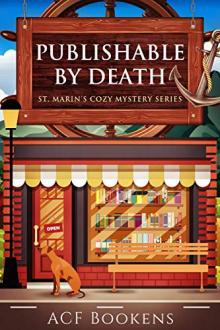Genre Mystery & Crime. Page - 3

ah!" Jensen snorted contemptuously. "I can take care of myself. I know what I'm doin', I tell you."
"You may, but you don't act like it," was Wade's parting remark, as he turned his horse and rode off.
"Go to hell!" the Swede shouted after him.
Heading toward Crawling Water, the ranch owner rode rapidly over the sun-baked ground, too full of rage to take notice of anything except his own helplessness. The sting of Jensen's impudence lay in Wade's realization that to enlist the aid of the sheriff against the sheep man would be very difficult, if not altogether impossible. There was very little law in that region, and what little there was seemed, somehow, to have been taken under the direction of Race Moran.
It was now broad day and the prairie warmed to the blazing sun. Long, rolling stretches of grass, topped with rocks and alkaline sand, gave back a blinding glare like the reflection of a summer sea, from which arose a haze of gray dust like ocean mists over distant reaches. Far

such Romance, thrice refined of dross, as only he knows whohas wooed his Art with passion passing the love of woman.
Far away, above the acres of huddled roofs and chimney-pots, thestorm-mists thinned, lifting transiently; through them, gray, fairy-like,the towers of Westminster and the Houses of Parliament bulked monstrousand unreal, fading when again the fugitive dun vapors closed down upon thecity.
Nearer at hand the Shade of Care nudged Kirkwood's elbow, whisperingsubtly. Romance was indeed dead; the world was cold and cruel.
The gloom deepened.
In the cant of modern metaphysics, the moment was psychological.
There came a rapping at the door.
Kirkwood removed the pipe from between his teeth long enough to say "Comein!" pleasantly.
The knob was turned, the door opened. Kirkwood, turning on one heel, beheldhesitant upon the threshold a diminutive figure in the livery of the Plesspages.
"Mr. Kirkwood?"
Kirkwood nodded.
"Gentleman to see you, sir."
Kirkwood nodded ag

f. Richard had been sent on a mission of the greatest importance--one involving, Monsieur Lefevre had told her, the honor of both his country and himself. And she was to share it--to take part in its excitement, its dangers. The thought stirred all her love of the mysterious, the unusual. After all, since she had become the wife of a man whose profession in life was the detection of crime, should she not herself take an interest, an active part in his work, and thereby encourage and assist him? The thought made her impatient of all delay--she felt herself almost trying to urge the train to quicker motion--she was glad when at last they roared into the station at Brussels.
Grace had never before been in the Belgian capital, but she summoned a cab, and proceeded without difficulty to the Hotel Metropole. Here she was assigned to a small suite, and at once began to unpack the steamer trunk which was the only baggage she had brought with her. It was after four o'clock when she had completed this task, and

w doubtless posted at frequent intervals. So I stopped where I was and sat down quietly on a rock for a few minutes to recover my breath, for I had been pretty badly shaken and winded by my numerous tumbles.
As soon as I felt better I got up again, and taking very particular care where I was treading, advanced on tiptoe with a delicacy that Agag might have envied. I had taken about a dozen steps when all of a sudden the railings loomed up in front of me through the mist.
I put my hand on the top bar, and then paused for a moment listening breathlessly for any sound of danger. Except for the faint patter of the rain, however, everything was as silent as the dead. Very carefully I raised myself on the bottom rail, lifted my legs over, one after the other, and then dropped lightly down on to the grass beyond.
As I did so a man rose up suddenly from the ground like a black shadow, and hurling himself on me before I could move, clutched me round the waist.
"Got yer!" he roared. Then at

"
"Oh!" From the Columbine broke a cry of warning and swift dismay. "Don't you dare speak my name, sir--don't you dare!"
Fell assented with a chuckle, and subsided.
Ansley regarded his two companions with sidelong curiosity. He could not recognize Columbine, and he could not tell whether Fell were speaking of the scarf and jewels in jest or earnest. Such historic things were not uncommon in New Orleans, yet Ansley never heard of these particular treasures. However, it seemed that Fell knew their companion, and accepted her as a fellow guest at the Maillard house.
"What are you doing out on the streets alone?" demanded Fell, suddenly. "Haven't you any friends or relatives to take care of you?"
Columbine's laughter pealed out, and she pressed Fell's arm confidingly.
"Have I not some little rights in the world, monsieur?" she said in French. "I have been mingling with the dear crowds and enjoying them, before I go to be buried in the dull splendours of the rich man's hou

he had come to Fair Oaks some fifteen years previous to this time, dressed in deep mourning, accompanied by her infant son, about three years of age, and it was generally understood that she was distantly related to Mr. Mainwaring. She was a strikingly handsome woman, with that type of physical beauty which commands admiration, rather than winning it; tall, with superb form and carriage, rich olive skin, large dark eyes, brilliant as diamonds and as cold, but which could become luminous with tenderness or fiery with passion, as occasion required. To those whom she sought to entertain she could be extremely charming, but to a few even of these, gifted with deeper insight than the others, it seemed that beneath that fascinating manner was a dangerous nature, a will that would brook no restraint, that never would be thwarted; and that this was, in reality, the power which dominated Fair Oaks.
After years of mysterious seclusion, however, the beautiful home of Hugh Mainwaring, while maintaining its usual r

arden-path, wondering what it was that she had still to say to him. She led him into a small room at the back of the house, looking out upon the lawn. Then she stood in front of him.
"Will you kiss me once, please," she said simply, and she stood with her arms hanging at her side, whilst he kissed her on the lips.
"Thank you," she said. "Now will you go?"
He left her standing in the little room and led the horses back to the inn. That afternoon he took the train to London.
CHAPTER III
IN BOMBAY
It was not until a day late in January eight years afterwards that Thresk saw the face of Stella Derrick again; and then it was only in a portrait. He came upon it too in a most unlikely place. About five o'clock upon that afternoon he drove out of the town of Bombay up to one of the great houses on Malabar Hill and asked for Mrs. Carruthers. He was shown into a drawing-room which looked over Back Bay to the great buildings of the c

ll you?"
Mr. Sloane found compliance impossible. He could not steady his hand sufficiently.
"Hold that torch, judge," Hastings prompted.
"It's knocked me out--completely," Sloane said, surrendering the torch to Wilton.
Webster, the pallor still on his face, a look of horror in his eyes, stood on the side of the body opposite the detective. At brief intervals he raised first one foot, then the other, clear of the ground and set it down again. He was unconscious of making any movement at all.
Hastings, thoroughly absorbed in the work before him, went about it swiftly, with now and then brief, murmured comment on what he did and saw. Although his ample night-shirt, stuffed into his equally baggy trousers, contributed nothing but comicality to his appearance, the others submitted without question to his domination. There was about him suddenly an atmosphere of power that impressed even the little group of awe-struck servants who stood a few feet away.
"Stabbed," he said,

f ever I saw honesty and truth and love and loyalty looking out of a girl's eyes, that girl is Myra McLeod."
"Thank you for that, Den," I answered simply. There was little sentiment between us. Thank heaven, there was something more.
"And so you see, you lucky dog, you'll go out to the front, and come back loaded with honours and blushes, and marry the girl of your dreams, and live happy ever after." And Dennis sighed.
"Why the sigh?" I asked. "Oh, come now," I added, suddenly remembering. "Fair exchange, you know. You haven't told me what was worrying you."
"My dear old fellow, don't be ridiculous, there's nothing worrying me."
I pressed him to no purpose. He refused to admit that he had a care in the world, and so we fell to talking of matters connected with the routine of army life, how long we should be before we got to the front, the sport we four should have in our rest time behind the trenches, our determination to stick together at all costs, etc. Suddenly Dennis sat
